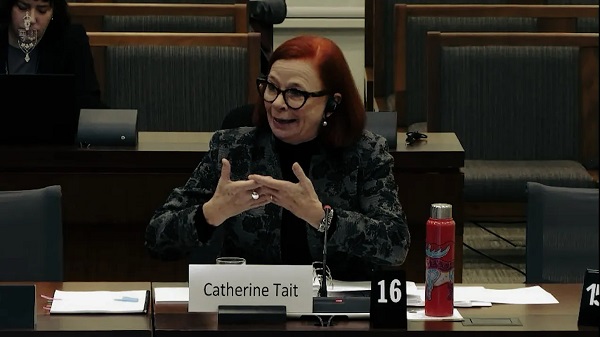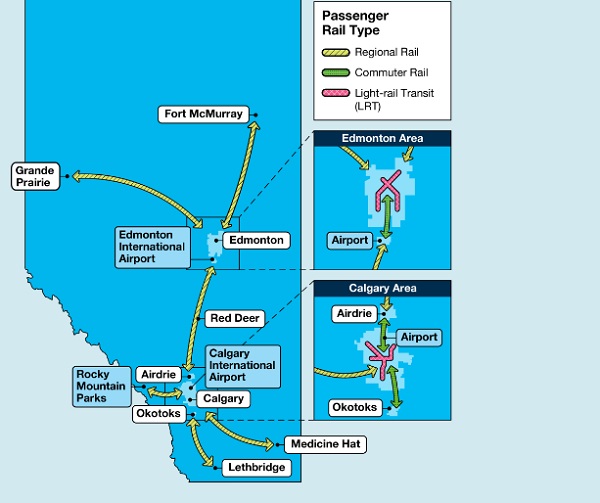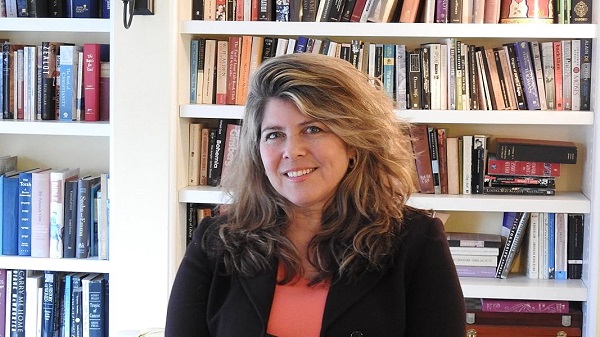Crime
What did Canada Ever Do to Draw Trump Tariff on Immigration, You Ask? Plenty
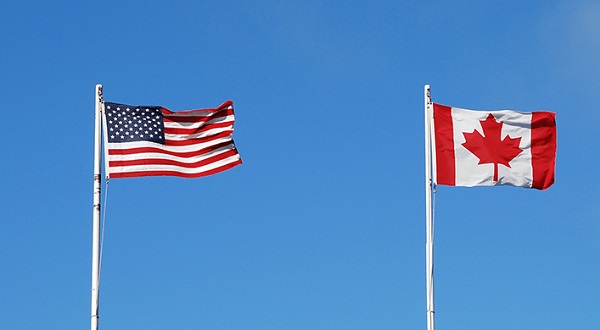
By Todd Bensman as published by The Daily Wire
Much US national security and public safety damage from: an historic Canadian legal immigrant importation program and making Mexican travel visa-free.
President-elect Donald Trump bloodied Mexico and Canada with diplomatic buckshot this week by writing that, on his first day in office, he’ll levy devastating 25-percent trade tariffs on those two U.S. neighbors if they fail to crack down on illegal immigration and drug trafficking.
Much public puzzlement has filled international media coverage over why Trump would single out Canada for punishment equal to that of the far guiltier Mexico.
“To compare us to Mexico is the most insulting thing I’ve ever heard from our friends and closest allies, the United States of America,” Ontario Premier Doug Ford said. “I found his comments unfair. I found them insulting. It’s like a family member stabbing you right in the heart.”
“We shouldn’t confuse the Mexican border with the Canadian border,” Canadian Industry Minister Francois-Philippe Champagne said.
But this narrative seems intended to deflect public acknowledgement of what the liberal progressive government of Justin Trudeau did do to draw Trump’s tariff ire. In terms of immigration policy, the Canadian offenses are indeed much different from Mexico’s opened super-highway mass migration wave-throughs during the Biden-Harris years. But what Canada has done, arguably, damaged U.S. national security and public safety interests in harmful ways that media outlets on both sides rarely report.
Canada’s massive legal immigration program as a U.S. national security threat

Much of the damage arises from an historic Canadian legal immigrant importation program of unprecedented scope. Since the program’s 2021 implementation, the Great White North has imported some 1.5 million foreign national workers (400,000+ per year for the nation of 38 million) from dozens of developing nations and hundreds of thousands more foreign students in just 2023 – the third record-breaking year of those.
Why are those programs a U.S. problem? Because a spiking number of foreign nationals are apparently abusing the Canadian programs as a Lilly pad from which to illegally enter the United States between northern border land ports of entry, among them proven threats to U.S. national security and public safety.
Why this traffic leaking into the United States is a problem – even though the total numbers illegally entering from Canada are small relative to those crossing from Mexico – arises from the fact that many hail from Muslim-majority nations and have, Canadian media reports, fueled a spate of terrorism and anti-Semitic attacks throughout Canada. As well, far too many of the Mexicans Canada has allowed in turned out to be cartel drug traffickers and killers.
Those kinds of criminals are crossing the U.S. northern border in increasing numbers due to Canadian policies that Canada could address if it wanted to.
Consider that U.S. Border Patrol apprehensions in the brush between U.S.-Canada land ports of entry jumped from 2,238 in FY2022 to 23,721 in FY2024, neatly coinciding with Trudeau’s mass legal immigration programs.
Among those crossing in illegally from Canada, for instance, were 15,827 Indian nationals in FY 2023 and 2024, 8,367 Mexicans, and 3,833 from unspecified countries listed only as “Other” on the U.S. Customs and Border Protection’s public statistics website.
A border-crossing terror plot foiled
Concern on both sides of the U.S.-Canada line has simmered for some years as Canadians saw the newcomers carry out terror plots, actual attacks, and probably some of the record-breaking nearly 6,000 antisemitic incidents Canada logged since the Israel-Hamas war broke out.
What’s been happening in Canada was obvious to many.
“Canada has become a hotbed of radicalization, fanaticism, and jihadism,” wrote Casey Babb, Senior Fellow with the Macdonald-Laurier Institute in Newsweek shortly after the arrest. “As un-Canadian as it sounds, Canada has a terrorism crisis on its hands and that should worry the United States for a whole host of reasons.”
Concern would reach an apogee in October 2024, when a joint U.S.-Canadian counterterrorism operation thwarted a plot by a Pakistani student on a Canadian visa to illegally cross the northern border to conduct an October 2024 massacre of Jews in New York.
Muhammad Shahzeb Khan, a 20-year-old Pakistani citizen legally issued a Canadian student visa in June 2023, now stands accused in U.S. federal court of plotting an illegal-smuggler-assisted northern border crossing to carry out a mass shooting of Jews in New York City to celebrate with blood the October 7 anniversary of the Hamas massacre in Israel. Khan hoped it would go down in history as “the largest U.S. attack since 9/11”.
“We are going to nyc (sic) to slaughter them” with AR-style rifles and hunting knives “so we can slit their throats,” Khan told an undercover FBI agent he believed to be a co-conspirator, according to an agent complaint. “Even if we don’t attack an event we could rack up easily a lot of Jews.”
His was among the record-breaking 400,000 foreign student visas Canada issued in 2023.
That alarming new terrorism prosecution in New York State should have been enough to renew Trump’s interest in turning diplomatic pressure onto Canadian Prime Minister Trudeau’s mass legal immigration policies and border security on its side.
But terrorists cannot be the only concern.
Mexican cartel killers and traffickers in Canada crossing too
The incoming Trump administration 2.0 will need to force resolution of another issue of U.S. public safety concern dating to an especially damaging 2016 Trudeau move that went unaddressed until only recently. Trudeau rescinded 2009 visa requirements on Mexican citizens and against the advice of his own government that Mexican criminals would abuse the policy to fly in at will and bedevil Canadian cities and northern American ones too.
That’s just what was happening again by early 2017. A sustained surge was underway of Mexican nationals who, unable to easily cross the southern border under Trump 1.0, were flying over the United States into Canada. They would claim Canadian asylum, then cross southward over the less tended northern U.S. border.
Among them were the predictable – and predicted – Mexican cartel operatives.
Leaked Canada Border Services Agency intelligence reports said Mexican “drug smugglers, human smugglers, recruiters, money launders and foot soldiers” were turning up in greater numbers than ever before. The cartels went to work building human smuggling networks to move other Mexicans south over the American border, just as they did all along the southern border.
In July 2017, Global News quoted published the intelligence reports saying the ultra-violent Sinaloa cartel had turned up in Canada to “facilitate travel to Canada by Mexicans with criminal records.” Others identified included La Familia Michoacana, Jalisco New Generation, and Los Zetas.
For instance, whereas the reports said 37 Mexicans linked to organized criminal groups had entered between 2012 and 2015, 65 involved in “serious crimes” were identified midway through just 2017, compared to 28 in 2015. By May 2019, at least 400 Mexican criminals connected to drug trafficking, including sicario hitmen, were plying their trades in Canada, at least half of them in Quebec, according to a May 24, 2019, report in the Toronto Sun and other Canadian media outlets.
All had entered through the Trudeau visa loophole for Mexicans.
By the end of 2019, Canada saw a 1,400 percent spike in the number of bogus Mexican refugee claims, the vast majority naturally rejected, and of associated detentions.
Canada finally about to face the music
Only in February 2024 did the Americans pressure the Canadians finally begin to roll back some – but not all — of its visa-free Mexicans policy, because the influx had clogged Canada’s asylum system with too many bogus claims and also sent too many Mexicans illegally over the U.S. border, which presented a politically terrible look as the 2024 presidential election campaign got underway. Now, only Mexicans who already hold a US visa or old Canadian one can travel visa-free, while most other Mexicans with neither will have to apply for a Canadian one.
But the damage that must be managed today is by now well baked into the cake.
From January to mid-October 2022, for instance, 7,698 Mexican asylum seekers took direct flights from Mexico City to Montreal, according to a November 2022 Canadian Press story. The paper quoted officials at nonprofit refugee assistance groups attesting that most fly to Canada because they found out Trudeau’s visa-free policy also got them government financial assistance while awaiting their mostly denied asylum applications.
In their October 2021 book, The Wolfpack: The Millennial Mobsters Who Brought Chaos and the Cartels to the Canadian Underworld, journalists Peter Edwards and Luis Najera established that the Sinaloa Cartel now has a foothold across eastern Canada, with “solid control of cocaine shipments in and out of Canada.” The Arellano Felix group has its foothold in Vancouver and in the state of Alberta.
The Zetas are in Canada “involved with temporary migrant workers”.
Asked in 2023 if Canada’s importance to Mexican organized crime had increased “in recent years,” co-author Luis Najera answered: “I would say it has increased since criminal cells moved up north to settle and expand operations here. It is also strategic to have groups operating north of the U.S. border, close to key places such as Chicago and New York, and without the scrutiny of the DEA and rival groups.”
Canada is not Mexico but its policies pose consequences for the United States. Any normal U.S. administration would put Canada on the hook for adjusting its policies and more robustly guarding its supposedly treasured neighboring ally, the United States, from harm. If punishing trade tariffs finally focus Canada’s attention on those policy-driven harms, let them last until Canada fixes what it recklessly broke.
Crime
Luxury Vancouver Homes at the Center of $100M CAD Loan and Chinese Murder Saga

In a case intertwining toxic loans, a brutal murder, and a court-ordered execution in China, amid the transnational flow of millions into Vancouver’s luxury real estate market, two families are locked in a legal battle over at least five high-end homes in areas of the city reshaped by decades of murky capital flight funneled through underground transfers into Canada’s West Coast.
The plaintiffs’ case, which initially focused on at least eight properties—now reduced to five—alleges that “many millions” worth of real estate was purchased with proceeds from unpaid loans in China and fraudulent transfers into Vancouver real estate.
On November 21, the Supreme Court of British Columbia delivered a procedural ruling allowing the six-year-long Canadian court battle, which includes sordid details such as the slaying of the lender family patriarch in China by the borrower, the now-deceased Long Ni, to continue.
Mr. Ni had promised the lender and his family high returns—up to 50 percent per annum—for providing him funds to invest in Chinese coal mines, the filings say.
Before his death, Changbin Yang, a 54-year-old businessman, had extended two series of loans to Mr. Ni, neither of which had been repaid. The first series, predating 2014, totaled approximately $100 million CAD, including interest. The second involved two loans in April 2017 of about $6 million CAD.
A key detail emerged from a Chinese court ruling in Hubei province. It said Mr. Yang’s claim for massive debt repayments stemmed from a series of promissory notes, culminating in a master promissory note “issued by Mr. Ni to Mr. Yang dated April 8, 2017, three months before Mr. Yang was murdered.”
On July 25, 2017, Mr. Yang was murdered in China at Mr. Ni’s behest. Following the murder, Mr. Ni was prosecuted, convicted, and sentenced to death by the Chinese courts. After exhausting all appeals, he was executed in 2020.
The plaintiffs in the lawsuit are five relatives of Mr. Yang, including his wife, Ms. Liu, and various other family members. Most are permanent residents of Canada living in China. They allege that the murderer’s family are “sitting on property in Vancouver worth many millions of dollars,” the November 2024 B.C. Supreme Court ruling says.
The plaintiffs are seeking judgment against all three defendants—Mr. Ni (now deceased), his wife, Ms. Chen, and his daughter, Ms. Ni—for debt, conversion, and unjust enrichment amounting to approximately $113.5 million CAD.
But Mr. Ni’s family, now living in Vancouver, denies financial ties to the executed borrower and asserts that the court battle is preventing them from selling some of their Canadian properties.
“Ms. Chen and Ms. Ni filed a joint response to the civil claim,” the procedural ruling states, in which “they deny any involvement in, or even knowledge of, the financial transactions between Mr. Yang and Mr. Ni. They plead the allegations of wrongdoing against them ‘are fabrications from start to finish.'”
Filings in the case detail the circumstances under which the murderer’s family settled in Vancouver, apparently four years after Mr. Ni started drawing on loans from his subsequent victim.
In her affidavit dated September 13, 2024, the murderer’s wife described how the family moved to Vancouver in 2011 after she obtained permanent resident status the previous year. She and her husband purchased their matrimonial home on West 33rd Avenue in December 2010 and moved in by March 2011. While Mr. Ni continued working in China, he visited his family in Canada several times a year.
Ms. Chen described their marriage as “a typical relationship in that part of China,” stating that she was a stay-at-home mother while her husband was the family’s breadwinner. She claimed to be aware only in a general sense of what her husband did for a living and, in accordance with her culture, would not “pry into his business affairs.” Ms. Chen also detailed purchasing two rental properties in 2011—on Granville Street and West King Edward Avenue—using money that her husband earned.
The murderer, Mr. Ni, was alive when the lawsuit was initiated and filed a “bare-bones” Response to Civil Claim in December 2018. Following his execution, his counsel withdrew, leaving Ms. Chen and Ms. Ni to face the allegations alone.
Initially, the plaintiffs’ claim targeted “at least” eight properties in Vancouver and Burnaby. They specifically alleged that each of these properties had been purchased by Mr. Ni with the loan proceeds from Mr. Yang and registered, either at the time of purchase or later, in the name of his wife or daughter. However, as the case progressed, doubts arose regarding the true ownership of three properties. The plaintiffs amended their claim to focus on five properties, refining their allegations.
The lawsuit now centers on five properties located across Vancouver’s most exclusive neighborhoods, including Shaughnessy, Kitsilano, Kerrisdale, and West Point Grey—areas renowned for their affluence and skyrocketing home prices.
Notably, West Point Grey is the riding of B.C. Premier David Eby and the neighborhood where Canadian Prime Minister Justin Trudeau once taught at a private school before entering Liberal Party politics. The plaintiffs allege they have traced funds from Mr. Ni’s business activities and alleged crimes in China to these properties.
Commenting on his sympathy toward the plaintiffs—despite long procedural delays in their case—in November 2024, Supreme Court Justice Kent wrote, “The plaintiffs are victims of a horrific crime committed by Mr. Ni.”
Addressing the defendants’ claims of ignorance regarding the murderer’s business activities in Chinese mining, he added, “Although Ms. Chen and Ms. Ni testify in their affidavits that they had no knowledge of Mr. Ni’s business affairs, they do not deny that the money used to purchase the properties registered in their name was supplied by Mr. Ni from his business activities in China.”
Travel restrictions due to the COVID-19 pandemic added another layer of complexity. Ms. Liu pointed out that Mr. Ni’s incarceration in China meant he was unable to testify in the British Columbia proceedings, although his testimony was available for the Chinese litigation. She also noted that in 2022, with China’s borders closed, the plaintiffs were uncertain whether they could travel to Canada for the trial.
According to Ms. Liu, the plaintiffs had information suggesting that Mr. Ni had used the loaned funds to invest in coal mines in China. They hoped to enforce the Chinese judgment against these assets before pursuing real estate recovery in Canada.
This case, far from finished, is representative of numerous similar legal battles over Vancouver property, characterized by complex transnational loan arrangements, frequently linked to underground banking and opaque business dealings in China. It underscores the challenges of Canadian courts in mediating massive property dealings involving allegations of transnational financial fraud, sometimes intertwined with violent crime and debt enforcement battles.
As Canada grapples with a housing affordability crisis—issues The Bureau’s investigations suggest are partly linked to international underground banking networks involving China and Middle Eastern states—this case seems emblematic of systemic challenges extending far beyond the dispute between the families of the murdered lender Mr. Yang and the executed borrower Mr. Ni.
The Bureau is a reader-supported publication. To receive new posts and support my work, consider becoming a free or paid subscriber.
Crime
Joe Biden pardons son Hunter for any crimes committed in the last 10 years!
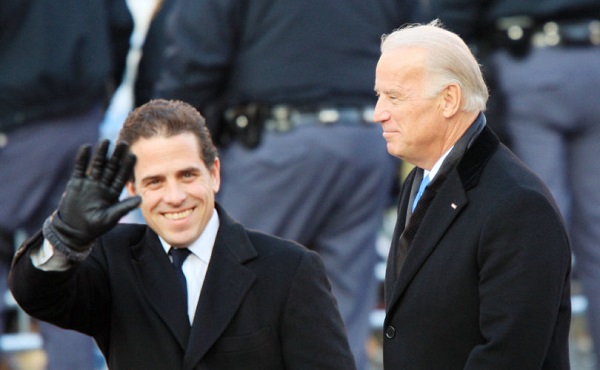
From LifeSiteNews
Outgoing President Joe Biden granted his son and business partner Hunter Biden a sweeping pardon for any federal crimes he may have committed, known or unknown, from 2014 all the way through last month.
Outgoing President Joe Biden issued a sweeping pardon Sunday evening to his troubled son Hunter for any known or unknown crimes committed over the span of a decade after repeatedly denying he would do so.
For years, the Biden family has been dogged by allegations of personal corruption and influence peddling. During the Obama years, the former vice president infamously boasted that he facilitated the firing of Ukrainian Prosecutor General Viktor Shokin, who had been investigating energy company Burisma Holdings (on whose board Hunter served despite lacking experience in the energy industry), by threatening to withhold a billion-dollar loan from the U.S. to Ukraine. Defenders claim that the move was about Shokin not prosecuting corruption aggressively enough, but critics suggest it was about Shokin potentially getting too close to Burisma and, by extension, Hunter.
In the months before the 2020 presidential election, the New York Post released a series of bombshell reports about a laptop belonging to Hunter that was delivered to and abandoned at a Delaware computer repair shop and contained scores of emails and texts detailing the Biden family’s international business activities, which exploited Joe’s political office by offering access to the highest levels of the federal government and the various worldwide connections made through that office. The story was initially maligned as “disinformation” but eventually acknowledged as real long after Biden was safely elected.
Earlier this year, Hunter was convicted on multiple felony counts for tax evasion and illegally purchasing a gun while under the influence of drugs, with sentencing slated for sometime this month. His father rendered sentencing moot over the weekend, however, by formally granting Hunter a “Full and Unconditional Pardon” for federal offenses “which he has committed or may have committed or taken part in during the period from January 1, 2014 through December 1, 2024.”
The president insisted that he kept his word to “not interfere with the Justice Department’s decision-making,” but maintained that Hunter “was singled out only because he is my son – and that is wrong. There has been an effort to break Hunter – who has been 5 1/2 years sober, even in the face of unrelenting attacks and selective prosecution. In trying to break Hunter, they’ve tried to break me – and there’s no reason to believe it will stop here. Enough is enough.”
The move, which not only saves Hunter from whatever sentence he might have received but also helps protect the president himself from future convictions against the son leading to legal jeopardy for the father, directly contradicts numerous denials by Biden and White House representatives that Hunter would be pardoned.
In a June ABC News interview, Biden answered “yes” that he would accept the jury verdict and that he had ruled out pardoning his son. “I’m extremely proud of my son Hunter. He has overcome an addiction. He is one of the brightest, most decent men I know. I abide by the jury decision. I will do that, and I will not pardon him,” he said at a press conference a week later. White House Press Secretary Karine Jean-Pierre repeatedly said “no” to the pardon question, including last month after Donald Trump won his return to the presidency.
As recently as November 26, Senior Deputy Press Secretary Andrew Bates reiterated Biden’s past denials on the subject, stating, “The president has spoken to this (…) I don’t have anything idea (sic) to add to what he’s said already.”
“Does the Pardon given by Joe to Hunter include the J-6 Hostages, who have now been imprisoned for years?” Trump reacted on Truth Social. “Such an abuse and miscarriage of Justice!”
“The pardon power was written in absolute terms, and a president can even, in my view, pardon himself. However, what is constitutional is not necessarily ethical or right,” George Washington University law professor Jonathan Turley wrote. “This is one of the most disgraceful pardons even in the checkered history of presidential pardons. President Biden has lied to cover up a corruption scandal that reportedly brought his family millions in raw influence peddling. His portrayal of his son as a victim stands in sharp contrast to the sense of immunity and power conveyed by Hunter in his dealings.”
-

 Health2 days ago
Health2 days agoFauci admitted to RFK Jr. that none of 72 mandatory vaccines for children has ever been safety tested
-
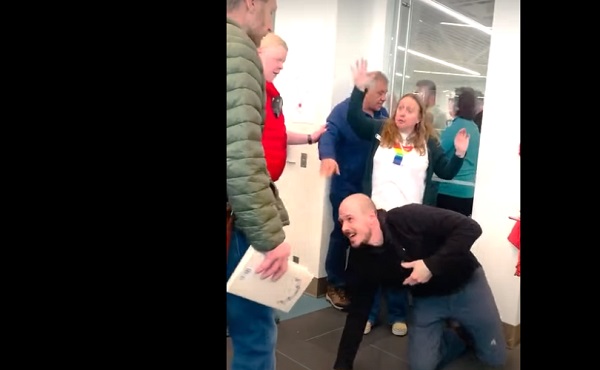
 Alberta2 days ago
Alberta2 days agoCanadian gov’t lawyers request jail for Calgary pastor who protested ‘drag queen story hour’ at library
-

 Business2 days ago
Business2 days agoTaxpayer watchdog says Canadian gov’t needs to use Trump ‘blueprint’ and create efficiency agency
-
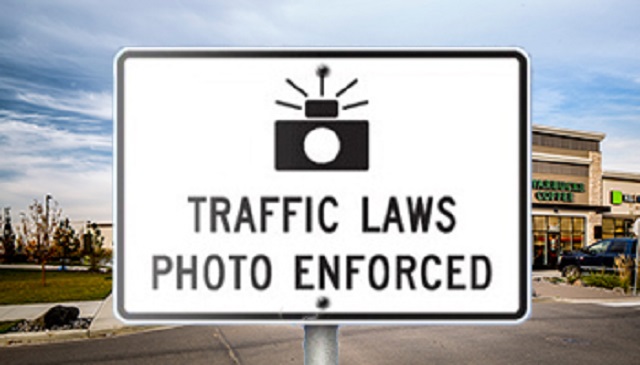
 Alberta2 days ago
Alberta2 days agoPutting an end to the photo radar cash cow
-
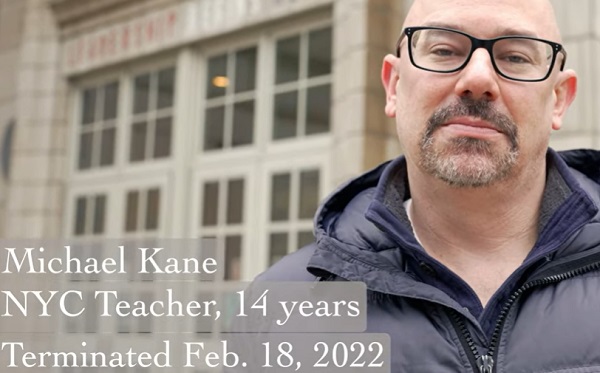
 COVID-192 days ago
COVID-192 days agoNew York City workers fired for refusing COVID jab ask Trump, Vance, RFK Jr. to reinstate them
-

 Crime2 days ago
Crime2 days agoJoe Biden pardons son Hunter for any crimes committed in the last 10 years!
-
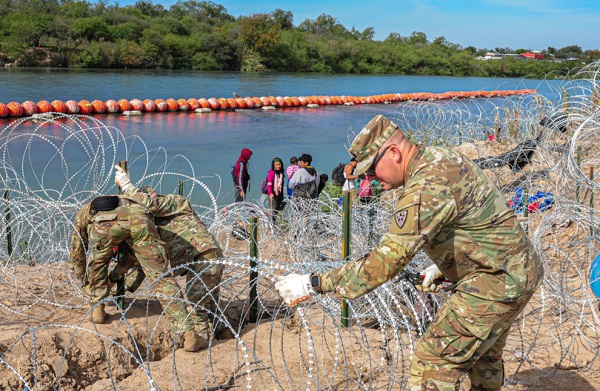
 illegal immigration1 day ago
illegal immigration1 day agoCourt rules in favor of Texas in razor wire case
-

 Bruce Dowbiggin2 days ago
Bruce Dowbiggin2 days agoMamas, Don’t Let Your Babies Grow Up To Be Running Backs (Pt.2)



